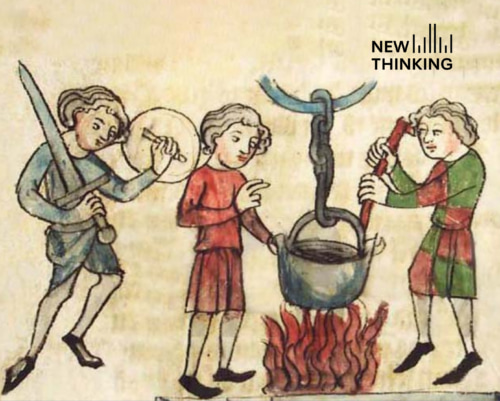Deborah Kendrick is the community mediation coordinator at the Crown Heights Community Mediation Center in Crown Heights, Brooklyn. Deborah came to the Mediation Center in October 2002 as a volunteer with AmeriCorps, a national program that engages more than 50,000 Americans each year in community service projects. Deborah sat down with Carolyn Turgeon of the Center for Court Innovation to discuss her training, experiences and the challenges she faces as a mediator.
Can you describe your role at the Crown Heights Community Mediation Center?
As the community mediation coordinator, I do the intake. People call here after being referred by the local police precincts, schools, community boards, elected officials, or other community-based organizations when they have a problem that they don’t know how to solve. I try to contact the complainants and respondents, find out the nature of the conflict, explain the mediation process, and find out if the respondents are interested. If they are, I find volunteer mediators from our pool of trained mediators, or mediate myself.
How are mediators trained?
It’s a three day training with experienced mediators. Participants are given different scenarios and they actually get in there and role-play. Afterwards they observe a real mediation and participate in about 12 real mediations with an experienced mediator present. So it’s a gradual process.
What kinds of cases have you dealt with?
I’ve done mothers who are having issues with their children acting out, noise complaints, issues between two neighbors.
My first case was a family mediation. A father was renting a room to his daughter, and she was behind in paying rent. So there was the issue of rent and then there was the whole issue of their relationship. It actually didn’t go quite as well as I wanted because she said something and he flared up and called her a liar. He stood up and was getting ready to walk out and I was like, “This is my first mediation; you can’t leave!” I ran through the door, almost begging him to stay. He left, but sometimes that is just part of the process. It is really important that if you say that the mediation process is voluntary, it actually is. They actually ended up coming back in and working the situation out. When you mediate, you have to work on the schedule of the parties, which isn’t always the same schedule as the mediators. Oftentimes the situations that people come into the mediation center to work out took a long time to become a problem, so they are going to take a little while to work out.
What are the main challenges for you as a mediator?
The challenge is different with each case. The first challenge for me personally – and something I’m still working on – is to try not to advise them on what I think is the obvious solution. Another challenge is rephrasing. A complainant will say something to me like, “It sounds like he’s dropping weights on top of me,” and I’ll rephrase it as, “OK, so it seems to me that there’s an issue about a sound coming from upstairs.” I try to get both parties to focus on the issue of the sound. I’ll try to change my vocabulary to a point where I can get people to set aside their emotions and look directly at the problem.
For what kinds of situations is mediation best suited?
I think that conflict is something that’s always going to exist and therefore we need skills and tools to deal with it. We try to explain to [participants] how when you’re in a conflict you’re often so busy attacking the other person that the issues become clouded. Kids especially need to understand this. From what I see in the schools, we really don’t teach them that resolving conflict doesn’t necessarily have to involve violence or cursing.
Mediation is something that can be used in the early stages of a problem. People, especially in family mediation, make a move only when there’s a crisis, but mediation is really fantastic as an early intervention procedure. That first time your child cuts school. Why not come to the mediation center? You might find out the underlying issues of your problem and learn about resources that you hadn’t known about before.
April 2004
